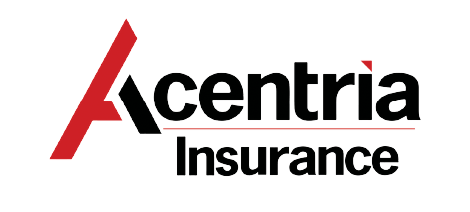Ensuring Protection for Your Loved Ones – Even After You’re Gone
Life can be unpredictable. That’s why ensuring your loved ones are covered and protected after your death is important, especially we grow older. Family members who depend upon you for an income could be left in a challenging situation if you were to unexpectedly pass away.
Life insurance policies from Acentria Insurance are flexible, affordable and designed to fit both you and your family’s needs. As we somberly honor Widow’s Day, let’s take a deeper dive into the importance and intricacies of life insurance.
Are there different types of life insurance?
Acentria offers several types of life insurance policies suited for varying situations and needs. These policies are divided into two categories: term and permanent (or whole) life insurance
Whole Life Insurance: Otherwise known as straight life or permanent life, whole life insurance is the most traditional life insurance policy. Whole life is designed for customers who value absolute guarantees and consistency in rate of return, cost and benefits. These policies are more expensive than term policies in the early years, but they even out because of steady premiums.
Universal Life Insurance: Universal life insurance is a type of permanent life insurance that offers more flexibility in premiums and face value throughout the policy. Universal life insurance policies have the potential for higher earnings on the savings component, and there is usually a guaranteed return on the cash value. Disadvantages include possible higher fees and increasing premiums.
Variable Life Insurance: A variable life insurance policy is also a form of whole life insurance that typically has fixed premiums. With variable life insurance, you maintain control over the investment decisions for the cash value portion. However, this may be a riskier option because there is no guarantee for the cash value.
Term Life Insurance: Unlike the others, term life insurance is life insurance that protects you and your dependents for a specified period of time. It’s the simplest and cheapest form of life insurance, but there is no cash value. Once the period is up, your policy becomes invalid.
Employers often offer either term or whole coverage (or both). Some employers cover the full cost while others require employees to pay a premium.
What life events affect my life insurance policy?
If you have an existing life insurance policy, it’s important to keep your insurance agent up-to-date on any major changes that occur in your life. Your agent might suggest adding to your current life insurance policy (such as when you have children) or bundling that policy with another necessary policy (such as homeowners insurance for when you purchase a home).
These life changes include, but are not limited to:
- Buying a home or renovating your current home
- Having children or adopting children
- Retiring (and moving residencies)
- Getting married
- Being responsible for a teenage driver
- Buying or selling a business
Contact an Acentria agent to learn more about how these changes affect your current policies.
What factors impact life insurance premiums?
Many factors are considered when looking at life insurance premiums. Women typically pay less than men due to a longer life expectancy, while smokers pay higher premiums than non-smokers. An individual’s health, family history, occupational risk and lifestyle choices all impact your life insurance premiums.
All new life insurance policyholders are required to undergo a medical exam and answer questions about their medical history. It’s important to be honest during this process: lying about your medical history could result in a loss of policy or denied benefits for your dependents upon your death.
While some factors are beyond your control, there are ways to reduce your life insurance premiums through lifestyle changes. Quitting smoking, losing weight through diet and exercise, and improving your cholesterol all may help reduce your current premiums.
You may also have an opportunity to reduce your premiums through a group rate. Call your Acentria agent to learn more about our cost-saving group rates.
Protection Throughout Your Life and Beyond
At Acentria, we know the subject of life insurance can be overwhelming and possibly uncomfortable. We’re here to walk you through the process and answer any questions you have along the way. Our top priority is providing you with a policy that safeguards you and your family after you’re gone.
Request a life insurance quote here to learn how you can start protecting your loved ones today.





.png?width=1200&name=MicrosoftTeams-image%20(12).png)
.png)
